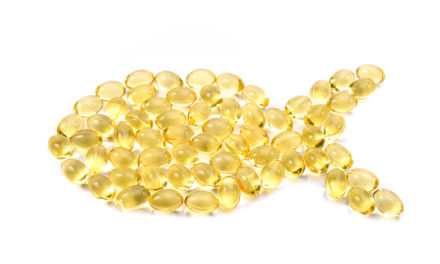 Graves’ disease is an immune system disorder that results in the overproduction of thyroid hormones (hyperthyroidism). While a number of disorders may result in hyperthyroidism, Graves’ disease is the most common cause. Research appearing in IUBMB Life (2001;51:105-109) looked at the effect supplementing with antioxidants had on Graves’ disease. The subjects were 56 patients between the ages of 22 and 66, with hyperthyroidism. They were randomly divided into three groups and received either methimazole (anti-thyroid medication) alone, with an antioxidant supplement (200 mg vitamin E, 3 mg beta carotene, 250 mg vitamin C, 7.5 mg zinc, 7.5 mg manganese, 1 mg copper and 15 mcg selenium), or a combination of the drug and antioxidant. The antioxidant alone did not affect thyroid hormone levels. It was noted that hyperthyroid patients had indicators of oxidative stress (need for antioxidants); malondialdehyde is increased and superoxide dismutase (SOD) and catalase activity is decreased when compared to healthy controls. The authors of the study believe that antioxidants may be a valuable adjunct to help relieve some of the symptoms of Graves’ disease. Other research appearing in Pharmazie (2005; 60(9): 696-700) looked at DNA damage to peripheral lymphocytes (white blood cells) in patients with Graves’ disease. Treatment with antioxidants reduced the cellular damage.
Graves’ disease is an immune system disorder that results in the overproduction of thyroid hormones (hyperthyroidism). While a number of disorders may result in hyperthyroidism, Graves’ disease is the most common cause. Research appearing in IUBMB Life (2001;51:105-109) looked at the effect supplementing with antioxidants had on Graves’ disease. The subjects were 56 patients between the ages of 22 and 66, with hyperthyroidism. They were randomly divided into three groups and received either methimazole (anti-thyroid medication) alone, with an antioxidant supplement (200 mg vitamin E, 3 mg beta carotene, 250 mg vitamin C, 7.5 mg zinc, 7.5 mg manganese, 1 mg copper and 15 mcg selenium), or a combination of the drug and antioxidant. The antioxidant alone did not affect thyroid hormone levels. It was noted that hyperthyroid patients had indicators of oxidative stress (need for antioxidants); malondialdehyde is increased and superoxide dismutase (SOD) and catalase activity is decreased when compared to healthy controls. The authors of the study believe that antioxidants may be a valuable adjunct to help relieve some of the symptoms of Graves’ disease. Other research appearing in Pharmazie (2005; 60(9): 696-700) looked at DNA damage to peripheral lymphocytes (white blood cells) in patients with Graves’ disease. Treatment with antioxidants reduced the cellular damage.
Grave’s Disease and Antioxidants





